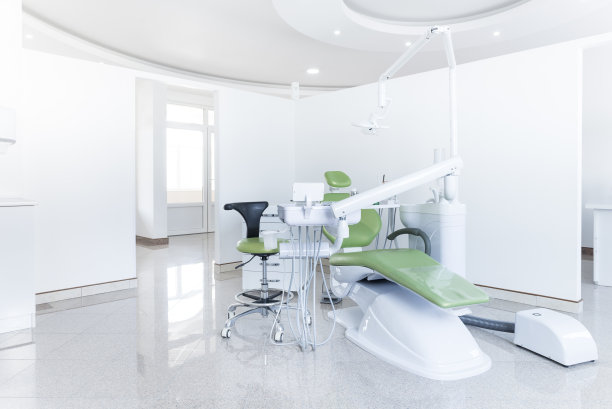Summary: Undergoing a dental filling procedure is an essential step in maintaining optimal oral health, but it requires careful consideration and preparation. This article outlines four critical precautions to take before your filling appointment: understanding the procedure, discussing your medical history, managing anxiety, and following pre-procedure care. By addressing these considerations, patients can ensure a smoother filling experience, enhancing both comfort and oral health outcomes. Being well-informed not only eases the process but also contributes to better long-term dental health.
1. Understand the Filling Procedure Thoroughly

Before undergoing a dental filling procedure, it’s crucial to have a clear understanding of what the process entails. Dental fillings are designed to restore the shape and function of a tooth that has been affected by decay or damage. Knowing the steps involved in the procedure can alleviate unnecessary anxiety and help set realistic expectations.
The first step usually involves the dentist administering local anesthesia to ensure that you remain comfortable throughout the process. Once the area is numb, the dentist will remove any decayed material from the tooth and clean the affected area. It’s beneficial to learn about the types of materials used for fillings, such as composite resin, gold, or amalgam, as this can play a role in your decision-making.
Additionally, understanding potential post-procedure effects, like sensitivity to temperature changes or slight discomfort, can prepare you for what to expect after the filling is placed. This knowledge can help in assessing how your body reacts to the treatment, making it easier to communicate with your dentist if any issues arise.
2. Discuss Your Medical History in Detail
Your medical history is a vital aspect to consider before receiving a dental filling. Sharing relevant information with your dentist can help tailor the approach to your individual needs. Be sure to disclose any allergies, particularly to dental materials or anesthetics, as this can significantly impact the filling process.
Moreover, if you have any underlying health conditions such as diabetes, heart issues, or autoimmune disorders, informing your dentist allows them to take necessary precautions. Certain conditions may affect healing or require specific modifications during the procedure, enhancing safety for the patient.
If you are taking medications, especially blood thinners or medications that affect bone health, discussing these with your dentist can lead to better outcomes. Your dentist may suggest postponing the procedure or adjusting your medication regimen to ensure a safe and effective filling process.
3. Manage Anxiety and Stress Levels
Dental anxiety is a common concern, but managing this anxiety is essential for a smoother filling experience. Many patients may feel apprehensive about dental procedures, but adopting specific techniques can help calm nerves before your appointment. Deep breathing exercises, visualization, and mindfulness can reduce anxiety levels effectively.
Consider discussing your fears and concerns with your dental professional; they can provide reassurance and tips to make you more comfortable during the procedure. Some dental offices also offer sedation options, making it easier for anxious patients to undergo treatment without distress.
Additionally, bringing a friend or family member along on the day of your appointment can provide emotional support. Having someone there can help you feel more relaxed and confident as you navigate the filling procedure together.
4. Follow Pre-Procedure Care Guidelines
Preparation before the dental filling procedure can play a significant role in its success. Following your dentist’s pre-procedure care instructions is crucial. For instance, it may be recommended to avoid eating or drinking for a specific period before your appointment, especially if you will be receiving sedation.
Moreover, if you are taking medication for anxiety or pain, confirm with your dentist whether you should take them before the procedure. Sometimes, your dentist might instruct you to skip certain medications to reduce risks.
Finally, make sure to maintain good oral hygiene before your appointment. Brushing and flossing can minimize the amount of bacteria in your mouth, helping to create a cleaner environment for the filling process and potentially reducing post-procedure complications.
Summary:
In conclusion, taking essential precautions before undergoing a dental filling procedure enhances comfort and contributes to optimal oral health. Understanding the filling process, sharing your medical history, managing anxiety effectively, and adhering to pre-procedure guidelines are all critical steps for a successful experience. By taking these considerations into account, patients can ensure a smoother journey toward improved dental health.
This article is compiled by Vickong Dental and the content is for reference only.
Vickong Dental
Vickong Dental is a large medical group established in Hong Kong in 2008 by professors from well-known medical universities in Guangdong and Hong Kong, as well as medical doctors from key national '985' universities (including Master's supervisors and senior professors). The chain of branches brings together expert dentists with PhDs and Master's degrees from Hong Kong and Mainland China, committed to providing high-quality dental treatment.
"Vickong Dental Practices the University Motto of 'Healing and Serving Society,' with a Stable Operation for Sixteen Years. It Has Been honored with Hong Kong Enterprise Leaders's Choice,' and is a Global Trusted Implant Center for the Nobel Implant System. Recommended by Hong Kong Metro Broadcast and Guangdong Television, it Serves Customers from Over Thirty Countries and Regions, Gaining the Trust and Favor of Citizens from the Guangdong-Hong Kong-Macau Greater Bay Area and Surrounding Cities.

Thousands of customers' unanimous praise
The most recognized and highly recommended dental service by customers in the Guangdong-Hong Kong-Macau Greater Bay Area
We Ensure You Receive Detailed Care and Attention Here
Hong Kong standards, Shenzhen prices, Your Trusted English-speaking dentists

Vickong Dental Medical-Grade Instrument Disinfection Process
Vickong Dental Medical-Grade Instrument Disinfection Process

Vickong Dental Chain: A Warm and Comfortable Environment for Treatment






Appointment Hours

Q&A
Why choose Vickong Dental?
Vickong Dental practices the university motto 「Medicine to Benefit Society」, with each branch bringing together highly qualified dentists with doctoral and master’s degrees from Hong Kong and the Mainland, and has maintained seventeen years of steady operation。Recipient of 「2024 Hong Kong Enterprise Leaders Brand」, 「2025 Hong Kong Enterprise Leaders Brand」, a Nobel Biocare Global Trusted Implant Center, and a brand recommended by Metro Radio Hong Kong and Guangdong TV。
To date, we have served customers from more than thirty countries and regions,earning exceptionally high word-of-mouth recognition and trusted recommendations from residents across the Guangdong-Hong Kong-Macao Greater Bay Area and surrounding cities
We have eight major branches in Zhuhai、Shenzhen,and a consultation and service assurance center in Hong Kong,so you can book a free consultation at any time for any questions,which is very reassuring.
If I do not accept the quotation after the CT scan, will I be charged??
No! As long as the actual treatment has not started, you will not be charged any fees.
Will there be any additional charges during the treatment process?
No, there won’t be any additional charges. Before treatment begins, we will clearly explain the treatment plan and its corresponding fees. Only after the patient agrees and signs the consent form will we proceed with the dental service.
Can I pay in Hong Kong dollars?
Yes. Vickong Dental accepts payment in Hong Kong dollars. The amount will be converted based on the exchange rate of the day, and the applicable rate will be clearly communicated to you in advance.
Can I reschedule my appointment at any time?
Yes. Please contact us via **WeChat** or **WhatsApp** as early as possible, providing your original appointment time and details, along with your preferred new date and time slot for rescheduling.













